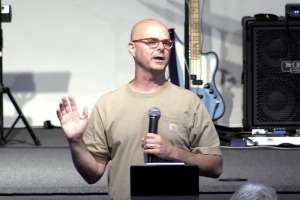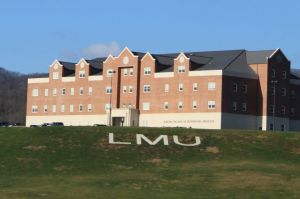Pentecostal Impact Growing in Latin America
Pentecostalism is thriving in Latin America with "spirit-filled" Christians constituting at least a third of the overall population in parts of the southern continent, a Pew Forum survey has found. The organization conducted further research to examine the Pentecostal history and politics of the country.
Over the past century, Pentecostals and Charismatics grew dramatically from 12.6 million in 1970 to 156.9 million in 2005. The World Christian Database reported Pentecostals as representing 13 percent of Latin America's population and Charismatic members, 15 percent.
Latin America is an overwhelmingly Catholic continent and houses other "evangélicos," or Protestants, such as Presbyterians, Lutherans and Anglicans. The Pew Forum on Religion & Public Life, however, noted that "Pentecostals represent the most rapidly growing sector of Latin American Protestantism."
In Brazil, which has the region's largest Protestant population, Pentecostals grew from less than 50 percent of Protestants in 1980 to 68 percent in 2000, Pew reported. In Central America, the growth of Pentecostals from 1965 to the 1980s was 37 percent to more than half. And today, Pentecostals make up some 73 percent of all Latin American Protestants, according to the World Christian Database.
Pentecostalism is not as prevalent in Mexico, Venezuela, Colombia and Peru, with Pentecostals representing well below 10 percent of the population. But some of them are currently witnessing significant Pentecostal growth, according to Pew.
"The impact of Pentecostalism on Latin America's religious landscape has been profound," Pew reported.
Pentecostal churches increased to make up 61 percent of all existing churches, according to a 1992 survey in the Greater Rio area of Brazil, and the proportion continues to increase. Protestant places of worship outnumbered Catholic ones by two-to-one in one Catholic diocese in Greater Rio.
The impact of Pentecostalism has been widening in public life.
A previous study by the Pew Forum – "Spirit and Power" – found a growing Pentecostal and Charismatic movement in nine out of the 10 nations it surveyed. And followers are more willing to bring their traditional values into public debates.
The new report found the expanding Pentecostal community has exercised an increasingly important role in public life. Examples include Guatemala having seen two Pentecostal presidents; Brazil's formation of an evangelical congressional caucus that consists largely of Pentecostals; and Nicaragua's Pentecostals founding a political party that has fielded presidential candidates and won seats in congress.
The Pew Forum pointed to several factors for the spate of Pentecostal politics.
The growth of Pentecostals led them to seek a greater share of public influence and political representation. Widespread and enduring democratization allowed for a greater opportunity to organize politically and influence their governments. Special benefits granted to the Catholic Church led Pentecostals to enter politics partly to abolish these benefits or to insist that they be made available to the growing Protestant communities as well. And left-of-center groups attempting to liberalize government policies on abortion, divorce and homosexuality have spurred Pentecostal political mobilization.
"Pentecostalism's growing presence in Latin American society and politics is attracting the attention of some of the region's most prominent politicians," the report stated, including Brazilian President Luiz Inácio Lula da Silva. "At the same time, Pentecostalism’s growing societal presence and political clout have attracted criticism and fueled political conflict."
Criticism and attacks have come from the Catholic Church including the late John Paul II who described the growth of Pentecostal churches as an "invasion of the sects" that is robbing Latin America of its Catholic culture and destroying its social cohesion. Latin America has an estimated 490 million Roman Catholics, more than any other region in the world.
Some argue that Pentecostal politics follows a monolithic pattern, but the Pew Forum revealed the different growth patterns and theological emphases seen among Latin America's Pentecostals.
"The result has been a great diversity of Pentecostal political styles and forms of activism."
Pew's report on Latin America is the first in an examination of Pentecostal history and politics in the countries surveyed for "Spirit and Power." Reports on Africa and Asia will follow.



























